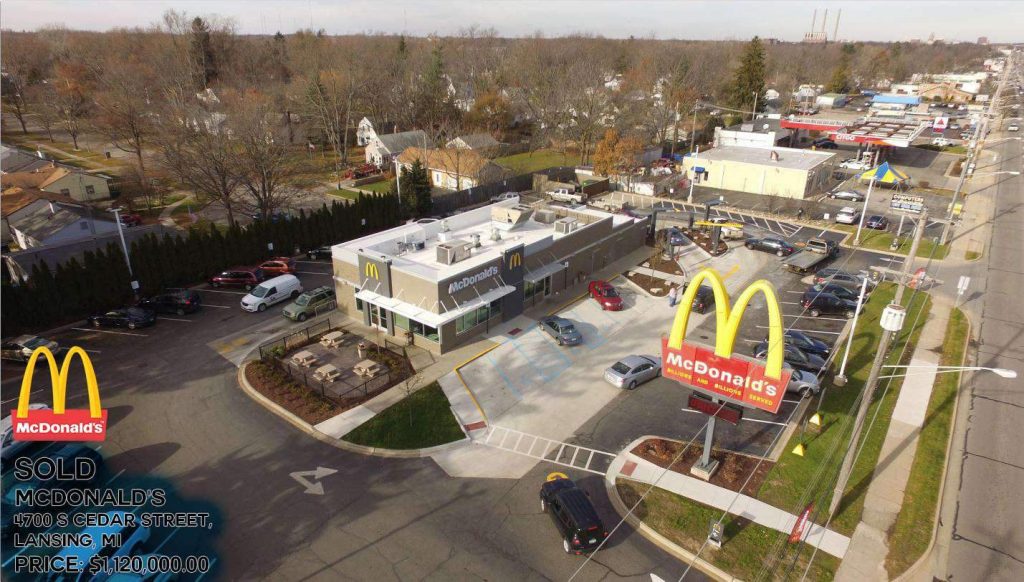
Selecting a property can be a challenging task for anyone, whether they’re first-time investors, or agents striving to meet their clients’ expectations to close real estate deals successfully. Given the inherent fluctuating nature of real estate, properties that seem good now may suddenly not be so valuable in the future. After all, investments aren’t free, so it’s essential to research extensively when purchasing properties. Of the many types of properties out there, triple net leases (or NNN) offer some of the most lucrative options for investors.
That said, it’s not a simple buy-and-forget investment. If anything, it’s quite the opposite. While it’s relatively low-risk compared to other properties, it also requires a bit more work. In this article, we’ll take you through the nuances of NNN properties, and teach you how to maximize their long-term value.
What are triple net leases (NNN)?
An NNN lease is a property agreement wherein the tenant essentially shoulders most of the expenses for the property. Expenses like real estate taxes, building insurance, and general maintenance become the tenant’s responsibility. NNN agreements offer lower rates for rent to compensate for the extra expenses.
Of course, every property owner has different caveats of what “most expenses” means. Generally, property owners are still responsible for utilities outside your rented space, the structure itself, and the roof in NNN leases. Operational expenses will be the bulk of negotiations for these property agreements. Understanding these aspects is crucial for making a profitable NNN investment possible for the investor.
Benefits of NNN properties
Now that you understand NNN properties, it’s time to look at their many advantages, primarily on the landlord’s side. NNN properties are most popular in commercial spaces, such as warehouses, shops, and restaurants thanks to the following benefits:
Steady Revenue
NNN properties provide landlords with a reliable stream of income. Tenants are responsible for the bulk of heavy expenses like property taxes, insurance, and maintenance. Thus, landlords can anticipate consistent payments without the fluctuations that may come with other lease types.
Less Complex
Compared to other types of property arrangements, NNN leases tend to be more straightforward. With tenants taking on responsibilities for expenses, landlords avoid the complexities of property management. This simplicity saves time and effort in administrative tasks.
Low Risk
NNN leases offer landlords a lower level of risk compared to traditional leases. Because tenants are responsible for covering operating expenses, landlords are less exposed to unexpected costs or liabilities. This reduced risk provides a sense of security and stability for property owners.
Flexible Terms
Landlords have the flexibility to negotiate terms that align with their preferences and goals. Whether adjusting lease durations, setting rental rates, or specifying responsibilities, NNN leases allow for customization to suit the needs of both parties. This flexibility facilitates mutually beneficial agreements and fosters positive landlord-tenant relationships.
Long-Term Occupancy
NNN properties often attract tenants who are looking for stable, long-term arrangements. Since tenants have a vested interest in maintaining the property and its profitability, they are more likely to commit to extended lease periods. This result reduces the risk of vacancies and provides landlords with a reliable source of income over time.
Pitfalls of NNN leases
While NNN leases can be quite lucrative for relatively low risk, there are still some potential worries. Namely, the deceptively “simple” nature of NNN leases may lead landlords to make mistakes they would otherwise have caught on other leases.
Careless Maintenance
In NNN leases, tenants bear the responsibility for property maintenance. While this may seem advantageous for landlords, it can lead to complacency regarding property upkeep. Landlords might assume tenants will address maintenance properly, but some tenants may not be up to the task. Failure to proactively monitor and address maintenance concerns might ruin the property altogether.
Fluctuating Tax Rates
Although tenants typically cover property taxes in NNN leases, landlords should remain vigilant about potential fluctuations in tax rates or assessments. Unexpected increases in property taxes could strain the profitability of the lease arrangement for landlords, especially if lease agreements do not include provisions to address such fluctuations.
Insurance Gaps
While NNN leases typically require tenants to maintain insurance coverage, landlords must ensure that the coverage is adequate and comprehensive. Failure to verify the sufficiency of insurance policies can leave landlords vulnerable to potential gaps in coverage, exposing them to financial risks in the event of property damage, liability claims, or other unforeseen circumstances.
Default Risk
Despite the stable income potential associated with NNN leases, landlords still face the risk of tenant default. Economic downturns, operational challenges, or unforeseen circumstances can impact tenants’ ability to fulfill lease obligations, including rent payments. Landlords should conduct thorough due diligence on prospective tenants to assess their financial stability and reliability.
Lease Misunderstandings
The apparent simplicity of NNN leases may lead to misunderstandings or oversight regarding lease terms. To prevent misunderstandings, landlords should ensure that lease agreements are clear, comprehensive, and accurately reflect the intentions of both parties. Otherwise, a long legal battle might await you in the future.
Final Thoughts
NNN leases are a solid and reliable investment. Of course, like any investment, it’s important to understand why it’s solid and reliable in the first place. NNN leases offer long-term value thanks to being low-risk and shuffling off most of the property responsibilities to the tenant. However, landlords should stay vigilant about the tenant’s responsibilities, and communicate with them often. In that way, investors can ensure the property generates the value it should.



